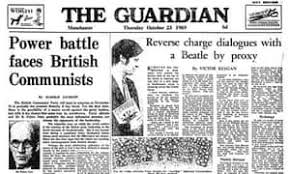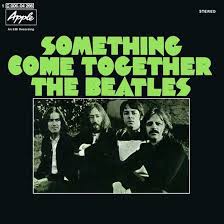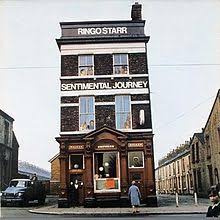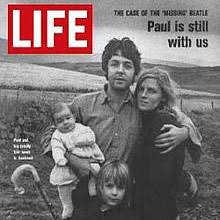From the archive, 23 October 1969: Beatles' magical mystery tour leads to Guardian reporter
Rumours that Paul McCartney is dead, which have pushed the Beatles back to the top of the charts in America, are only part of a new surge of Beatlemania which is sweeping across the United States.
I know because, unfortunately, my telephone has proved an all too accurate barometer of the Beatles' popularity in the United States.
Hundreds of people have rung my number day and night from America, where it has a magical significance, asking to speak to characters associated with Beatle songs. This built up to a crescendo in recent days.
"Hallo, can I speak to Sergeant J. Pepper," says a typical voice, courteous, charming - and with the charges reversed.
For months I bravely lost nervous energy in an attempt to discover the secret of why all America wanted to ring me. Late at night I would awake as if in the midst of a nightmare and reach shakingly for the telephone to hear: "I have a collect call for Mr Billy Shears from Chicago, Illinois. Will you accept?"
No calls were accepted, but as they grew more numerous and the American operators more intrigued (I am almost on Christian name terms with some of them), it turned out that I was being rung because of rumours that if you rang a magic number concealed on the sleeve of the "Magical Mystery Tour" album you would be able to hear the Beatles, be translated to mysterious romantic lands, and various other refinements.
The resurgence of Beatlemania in the States is now taking teenagers on a magical mystery tour courtesy of Bell Telephone, which ends iconoclastically at my telephone number.
A girl from California, who did not transfer the charges (she will have to learn the hard way), said she discovered me through gazing at the word Beatles, written in stars on the album sleeve, reversing the image to the mirror, and then reading it backwards.
If you screw your eyes up a bit, and let your imagination roam after a few scotches you can just about squeeze my number, 834 7132, out of it. And if you do not believe this, hundreds of teenagers and others have done just that.
Most of the callers ask for Billy (or Mr William) Shears, who appears on the Beatles' Sergeant Pepper LP, though why they ask for him especially I have never discovered. Others ask for Mr Kite, Mr Henderson ("The Hendersons will all be there"), Ivor Cutler, George Martin, Derek Taylor, and other less familiar names.
John Lennon, Paul McCartney, and George Harrison are frequently asked for, but never Ringo… Now that's the stuff real rumours are made of.
Nightly dialogue
The nightly dialogue is conducted with callers in Chicago, New York, California, Florida, and a host of other States. Over the past few days, as rumours of Paul's death (denied categorically by Apple in London) have mounted, the telephone would have been ringing almost continuously if it were not off the hook.
Most people want to hear that Paul is alive (asking through the operator) and once I confirm that, they refuse to believe that they have come through to the wrong number. One caller asked if Paul was alive and then added: "Can you give me any information about the R and D mortuary."
Yesterday, before leaving for work, I put the telephone back on the hook and it rang almost immediately. A voice with a Southern drawl said: "Hallo, sir, this is John K. Roberts, Radio Corporation of Miami, Florida. Can you tell me and my listeners if Paul McCartney is alive?" And so on and so on.
My favourite was Jane from Milwaukee, whom I shall miss dearly. She had tried the combination 834 7132 on all American exchanges. She told me: "I was sitting by the fire puzzling the quiz out, when I suddenly realised that the number must be in England." She cooled noticeably towards me when I confessed I was not a Beatle, but for a moment or two I knew what idolatry was.
Mythology
In spite of months of questioning I have been unable to trace the origin of the mythology of my telephone number. Most people seem to think it was started by some local radio station and then spread like a forest fire. The only common link of the calls is the consistent use of Beatles song language ("Is it true Paul died Wednesday morning at five o'clock?")
Most callers sound perfectly self-confident, not to say a little "high," and quite unapologetic about ringing up on a transferred charges basis in the middle of the night. On the rare occasions I have been able to question them about how they came to look for a telephone number on the album, they merely say: "Oh I got it from a friend of mine."
Yesterday my magical mystery tour ended. With a feeling of relief, tinged only slightly with regret, I finally decided to get my number changed, severing in one blow a transatlantic link which has been with me on and off for many months.
I rang the operators' supervisor expecting some sympathy for my disturbed nights. Instead she appeared to be thrilled to the bone. "That's marvellous," she said. "You should be able to sell that story to the newspapers for a fortune."
Alas, the unknown penalties of being a newspaper reporter.





